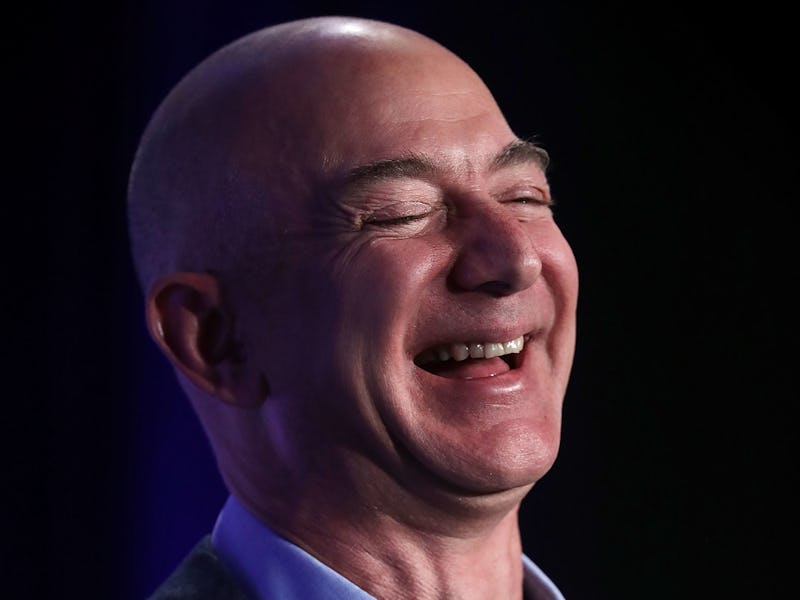Blue Origin CEO Jeff Bezos: Is He Going to Mars? LOL
Bezos is a big fan of humanity's home planet.

Blue Origin founder Jeff Bezos may seem like he would be a cheerleader for Mars colonization. At the Washington Post’s “Transformers” conference on Wednesday, however, he poured cold water over the dreams of people who want to leave the planet.
“Earth is by far the best planet in the solar system,” Bezos said. To give the sense of what living on Mars would be like, Bezos recommended that people spend some time in Antarctica. The icy continent would be a “garden paradise” compared to the experience of living on Mars.
Mars, a dusty wasteland, is missing almost everything that Earth-dwellers take for granted. Bezos said that it’s missing waterfalls, nature, blue skies, restaurants, friends, family, bacon, and whiskey.
“People haven’t really thought this through,” he said.
Bezos says don't believe the hype.
It may seem strange, then, that Blue Origin is working on a way for people to leave that planet. Why focus on space tourism if it’s not particularly useful? Because, Bezos said, “entertainment often leads to new technology.”
He offered to interviewer and Washington Post editor-in-chief Marty Baron the example of machine learning, like the technologies used in the Amazon Echo and the Alexa voice assistant.
Graphic processors, originally developed for video games, turned out to work very well for the sort of tasks involved with artificial intelligence, he said.
Jeff Bezos, founder and Chief Executive of Amazon.com and owner of The Washington Post, participates in a conversation during the event 'Transformers: Pushing the Boundaries of Knowledge,' May 18, 2016 in Washington, DC. The Washington Post hosted the event focusing on 'breakthroughs in artificial intelligence, commercial space travel, education and health care.
Similarly, early airplanes that couldn’t do too much focused on barnstorming. Pilots would land in farmers fields, offer to take the kids up in the air for a fun adventure, then land again. Today, aircraft serve far more useful purposes, but the humble origins were the catalyst for further development. Space travel could have similar benefits in future, Bezos said.
He also noted that Amazon depended on prior technologies to get its feet off the ground. Without somebody inventing the postal service, there wouldn’t be a way to get packages to the door. Credit cards invented previously provided a payment infrastructure. Fiber optic cabling used for long-distance calls laid the backbone for the internet, but none of these things were invented explicitly so that Amazon could use them.
Many startups have depended on prior technologies paving the way, even when the benefits may not be clear. He said: “I wanna do that for space!”
Elon Musk, largely seen as a friendly rival to Bezos when it comes to launching and landing rockets, started his own company, SpaceX, with the primary mission of going to Mars. Recently, Musk and SpaceX announced plans to send an uncrewed Red Dragon capsule “as soon as 2018.”
Meanwhile, Bezos’ Blue Origin seems more focused on developing a BE-4 rocket engine that will eliminate America’s reliance on Russian-made engines currently used in the United Launch Alliance Atlas 5 rocket that carries out NASA missions (and is in competition with SpaceX for contracts.)
Oh, and there’s the matter of Blue Origin’s space tourism business, which will take handfuls of people into space for five or six-minute destinations in low Earth orbit, where they’ll experience weightlessness while inside the New Shepard capsule before parachuting back to earth.